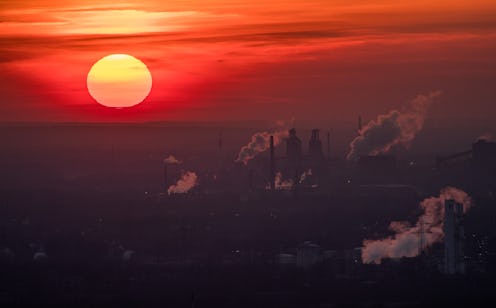News
The White House Will Continue Enforcing Methane Rules (For Now)

Following the outcry from environmentalists and 15 state attorneys general who joined a lawsuit against Trump's Environmental Protection Agency's proposals to halt Obama-era methane restrictions, Secretary of Interior Ryan Zinke said on Tuesday that the Trump administration will still enforce the methane rules that have already taken effect. However, according to the Associated Press, they are still working to rewrite them.
This comes contrary to the controversial proposal announced last week to delay the implementation of the Bureau of Land Management's rules which force energy companies to detect, repair, and limit leaks of methane. All in all, those rules prevent around 180,000 tons of methane from entering the atmosphere each year. At the time of its proposal, the EPA suggested that it wouldn't force energy companies to comply with it for two years "while the agency works through the reconsideration process."
It also comes after the Senate narrowly blocked a bill that would've repealed the rules entirely in early May when Republicans John McCain, Susan Collins, and Lindsey Graham sided with Democrats.
However, the rewrites are still very much on the agenda. On Tuesday, Sen. Maria Cantwell, a Democrat from Washington, asked Zinke whether he would "spend the next six months dragging [his] feet" on the rewrites. In addition to responding "Ma'am I do not drag my feet," Zinke said that he wanted to rewrite the rule in a way that allows taxpayers to limit the wasteful "flaring" of methane gas, ensure taxpayers get fair value for gas, and reduce "undue costs" on the industry.
Shortly after the EPA announced its first proposal, environmental advocates alleged that it wasn't within the agency's rights to delay the rules while they were reconsidering them and vehemently condemned how the halt would decrease many of the benefits of preventing the leak of pollutants and powerful greenhouse gases and the effects it could have on children.
As David Doniger, director of climate and clean air program at the Natural Resources Defense Council, told The Hill:
Those leaks are a major source of pollution and it affects communities that live nearby … and it affects the planet as a whole because methane is a very powerful greenhouse gas.
Regardless of the current enforcement of the rule, Zinke has explicitly stated that it's his intention to rewrite the rule to be more industry-friendly, but adds that he'll seek public comment during the rewrite process. For environmentalists, "industry-friendly" might not cut it.